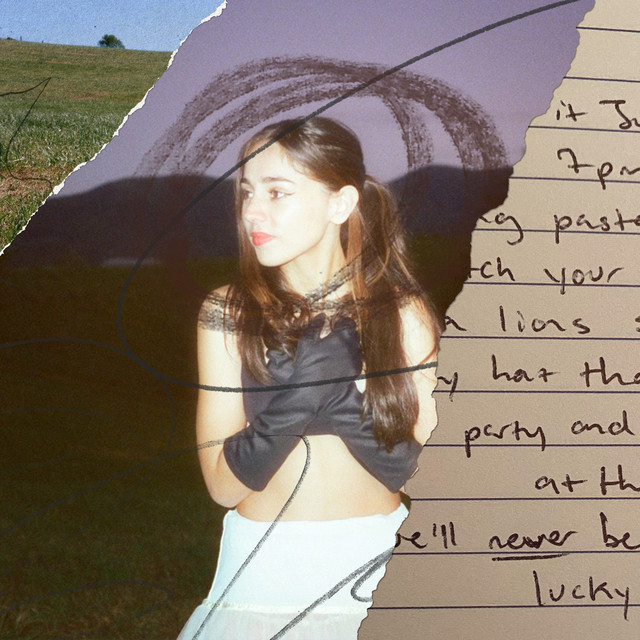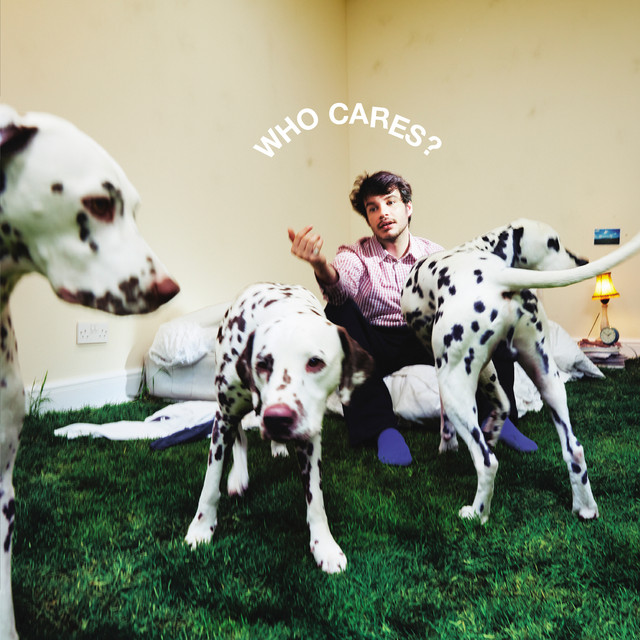Since I heard ‘Visions’ last April, I was eagerly anticipating the release of Hana Bryanne‘s debut album, Dollface. And I have to say, it did not disappoint. The album is a deeply personal and emotional collection of songs that showcase Bryanne’s exceptional talent as a songwriter, performer, and storyteller.
The album’s emotional impact is undeniable, and Bryanne’s voice is the standout feature of the album. Her soft and vulnerable vocals perfectly capture the emotion of each song, and her ability to tell a story with her lyrics is impressive. The album’s mix of indie-folk, pop, and country is refreshing, and it showcases Bryanne’s versatility as a musician. Bryanne is a perfect example of how music can be used to create an emotional connection with listeners.
“Dollface is about loss and suicide and rape but most of all, it’s about optimism.”
Hana Bryanne, Instagram
Bryanne is not only a singer-songwriter, she is also a poet and essayist. On Talkhouse, she shares an adjacent essay to her album, exposing real-life stories as women, and more specifically as a teenager, with the influence of the Internet. A lot of us have experienced creepy men in our DMs, from Tumblr to the early days of Instagram. It’s crazy to read her and realize most of us had the same experience and mindset: “What’s the risk? They have no idea who I am, where I live”. But still, their lingering influence and text crept into our minds at all times of the day. Bryanne describes it best: “Patriarchy is a slippery, ever-changing beast.”

For Dollface, Bryanne mostly wrote her song in the comfort of her bedroom, on the floor, and in her dorm in New York. She took them to the studio for Carter Jahn (Eliza Mclamb, OneRepublic) and Max Bienert to produce them, in Los Angeles, where she now resides.
The album’s opening track, ‘Doing The Play’, sets the tone for the rest of the album. The vocals are airy and muted. The production feels like a cloud enveloping you, and you can sense intimacy, honesty and, vulnerability radiating from the short 2-minute track.
‘Visions’ is how I first discovered Bryanne and is all about forgiveness. To be honest, I’m not a big believer in forgiveness in order to move forward. Sometimes, situations are unforgivable. But Bryanne put forgiveness in perspective: her storytelling and heartfelt reflections highlight the strength of forgiving oneself and extending forgiveness to others.
Probably the only upbeat song of the project (with ‘Clementine’), ‘Susannah at the Wedding’ is a contradiction. I’ll dance and scream the lyrics while realizing that “there’s no room in you for the things that I like.”
The title track, ‘Dollface’, is a commentary on misogyny and the way women are treated in our society. The song is inspired by Bryanne’s service work experience, where men often call her pet names like “doll.” Her anger and frustration towards how women are treated are palpable in this track, making it one of the most powerful on the album. The stripped-down instrumentals allow Bryanne’s voice and lyrics to shine, and the song’s emotional impact is undeniable. ‘Dollface’ is a perfect example of how music can be used to address important societal issues.
Bryanne shares universal experiences, including the complexity of the mother/daughter relationship. In ‘Clementine’, we get a glimpse of how difficult it is to be a daughter, but also how it is difficult to be a mother: “just promise if i change my mind that i’ll still look like you.” Such a paradox. The song continues into an outro, ‘Clementine II’, an acoustic finish to the upbeat and danceable song.
‘Lake Michigan’ is just angry and sad and powerful. While the lyrics are mostly angry at a male figure, Bryanne still self-reflects on this relationship, by realising the way it works: “I’m something you never care enough.”
One of my favourites on this project, ‘Cool Girl Song’, a mix of pop and indie rock, shines through guitar riffs and drum patterns. This one reminds me of Phoebe Bridgers or even Samia, which some qualify as the sag girl genre. Bryanne actually challenges the stereotypical image of women singer-songwriters as sad girls. She proves that it’s possible to write deeply personal songs without falling into the trap of wallowing in your own sadness.
The production of ‘Spades’ is by far my favourite. I’m a sucker for slow start, heavy bridges and melancholy. Hana’s vocals are soft, and they clash with the build-up happening mid-song, elating the inside of my body. I felt an overwhelming dose of emotions.
‘Valentine’s Day’ might have the most raw of the lyrics. While Bryanne was clear about the themes of her album, it is still a surprise to hear about days like this in a song. I like that she kept the sorrow, and didn’t try to make it danceable like in ‘Clementine’. Sometimes, sad and difficult to listen to is what we need to hear. My international self still longs to read all the lyrics I couldn’t grasp while listening to it.
The almost closing song of the album is so optimistic, which closes the emotional rollercoaster that is Dollface. It ends with a note of resilience and positive thoughts: “I’m betting the news is good / I’m betting the news is just fine.”
The album’s overall sound is unpolished and raw, which only adds to its emotional impact. The stripped-down instrumentals allow Bryanne’s voice and lyrics to take centre stage, and it’s clear that each song was crafted with care and intention.
“A lot of my music is sad. I’m not a sad girl, I’m a person.”
Hana Bryanne, Unpublished magazine
Ultimately, while Bryanne fights this sad-girl persona, it is an emotionally vulnerable project. The album is deeply personal, emotional, and unapologetically feminist. Dollface is an album that will make you feel all the emotions, and it’s definitely worth a listen.
Listen to Dollface:
Hana Bryanne's social media



